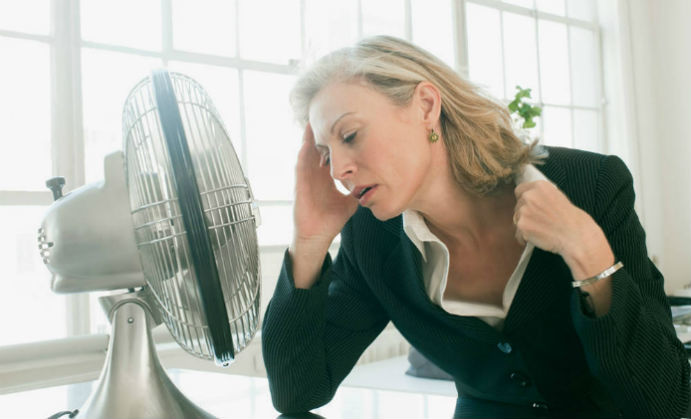Hot Flashes are known to be one of the most bothersome and most common menopausal symptoms, although it can be caused by other hormonal imbalances too. It causes major inconvenience if Hot Flashes start interfering with one’s daily activities or sleep schedule.
Causes
The actual cause of Hot Flashes is unknown till this day, however few theories of assumptions state that it is caused due to fluctuating level of female hormone estrogen. During menopause the women’s body slowly produces decreased level of estrogen which causes the malfunctioning of the thermostat in the brains, thus causing stimulation of sudden heat waves. Though estrogen fluctuation triggers many other medical disorders, those issues may not necessarily be the cause for hot flashes.
Symptoms

Prevention
Changes in Lifestyle – Initial or trivial symptoms of hot flashes can be treated by certain home remedies and slight changes in the lifestyle. Occurrence of hot flashes during menopause is highly seen in women who smoke. Thus, one can prevent hot flashes and the serious illnesses that follow just by quitting smoke.
Additionally, women who are overweight or who do not exercise on a regular basis are more prone to experience menopausal symptoms than those who are lean and healthy. Hot flashes are commonly seen in ladies of African origin when compared with Whites, Japanese or Chinese women.

Lastly, it is best to dress in layers such that when your body temperature fluctuates you can ease yourself by removing the layers accordingly and vice versa. It is also best advised to practice few relaxation techniques like meditation and yoga which will aid in preventing sleeplessness and reducing stress.
Medical Treatments
The most suggested and effective medical intervention is hormonal replacement therapy to treat hot flashes and the rest of the menopausal related illnesses. Few doctors prescribe anti-depressants such as venlafaxine, paroxetine or fluoxetine in certain cases. Other suggested drugs also include clonidine or gabapentin. Medicines prescribed vary with the level of hot flashes and also with the association of other medical disorders. Whatever the case may be, drugs must be consumed only under the prescription of a physician since it involves a lot of negative reactions and side effects.
Do you want to find an effective Menopause treatment? Check out our top rated Menopause products











